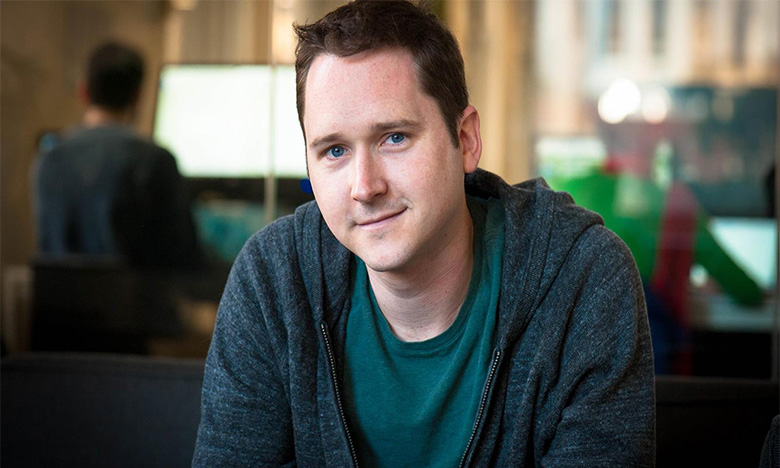What ingredients does a financial technology startup need to make it big? How about an eight-year veteran from the world’s largest hedge fund as CEO, a former colleague turned serial Silicon Valley entrepreneur as CTO and a Harvard- and Stern-educated expert in the company’s chosen niche — ethical investment — as CSO? Add an intensive three-month program at the world-leading startup incubator, Y Combinator, and you might be onto a winner.
That’s what 33-year-old CEO Conor Murray hopes as his company, OpenInvest, aims to change the way people invest their money and at the same time inject a bit of life into the ethical-investment movement, which has promised to transform the world for well over a decade. Born in Belfast and based in Northern California, where he has almost entirely lost his Irish accent, Murray says his online investment platform is all about being “straightforward, personalized and empowering.” And what better way to put power back into individual investors’ hands than the robo-advising algorithms built by Murray and CTO Phillip Wei (who also co-founded the food-delivery service Deliveroo in 2012)?
As one of the first companies to combine algorithmic investing with sustainable and responsible investment, OpenInvest stands apart for the transparency, usability and customizability of the portfolios created on its platform, says Murray. It’s still young (the platform only launched four months ago) and small (with 160 active accounts totalling roughly $1.5 million of assets under management), but it’s growing fast — they have more than 1,000 other clients in their pipeline and aim to hit $10 million AUM within a couple of months. For now, it keeps its costs down by squatting in the offices of another fintech startup, Digit, which was founded by Murray’s younger brother, Michael, who followed him from Belfast to San Francisco, via MIT.
In a nutshell, the OpenInvest algorithms take the issues you care about — such as carbon emissions or gender equality — along with your financial circumstances to create a bespoke portfolio chosen from its universe of stocks, which is currently limited to the S&P 500. While there are loads of other ethical funds, investors usually have to delegate their moral decision-making to fund managers. OpenInvest has eight ethical filters, which both negatively exclude some stocks and positively weight others, with plans to add many more as the company grows. Clients also can invest in or divest from companies at the swipe of a finger if, for instance, news of a corporate scandal breaks. A new feature coded in November even enables clients to divest from companies whose executives supported Donald Trump. This responsiveness makes the platform “infinitely customizable,” says CSO Joshua Levin. The ultimate goal is to offer customers “complete control of [their] capital,” says Murray, bringing the same level of ethical discretion that individuals exercise over what they eat and what they drive to where they put their money.
Growing up in Belfast at the tail end of the Troubles in Northern Ireland, when the city was segregated between Catholics and Protestants, and British Army tanks and bomb squads were a regular sight, Murray eventually was driven away by the claustrophobia of the place. His technical know-how landed him at MIT and then Bridgewater, the world’s largest hedge fund, where he refined his craft of coding investment platforms. Eventually, he realized he wanted to be his own boss and began scheming with Wei for ways to launch their own fintech venture, focusing on improving transparency and democratization in the opaque investment industry. When Levin, then one of the top sustainable finance gurus at the WWF, joined the team, it didn’t take much to convert Murray and Wei to the ethical-investment mission. Indeed, “financial performance is more of a check-the-box” now, says Murray, while building portfolios that “accurately reflect [clients’] values” matters more.
That said, the company’s algorithms still aim to build diversified portfolios to reduce risk — the company doesn’t claim that ethical investing will beat the market. But beating the market is no longer en vogue in the era of robo-advisers and passively managed funds: “The key idea is you’re just trying to get the return of a wide set of firms without trying to pick which ones you think are going to perform better,” says Professor Todd Gormley from the Olin Business School at Washington University, St. Louis. Passive funds, like the portfolios built by OpenInvest algorithms, are the “new normal” because they’re less expensive for investors, and there’s no real evidence that actively managed funds actually do any better, Gormley continues. Indeed, with a minimum investment of $3,000, OpenInvest is geared toward individuals hoping to put away a bit of cash for retirement. While the average investor doesn’t need complex financial instruments with hefty management fees, says Levin, there is a “massive gap between the complexity of what people believe and the off-the-shelf” options from existing social funds.
The jury is still out regarding the long-term performance of social investing, notes Vasant Dhar, a professor at New York University’s Stern School of Business. It remains to be seen whether OpenInvest’s pitch will convince retail clients to invest with their hearts. Murray cites Morgan Stanley research that shows 84 percent of millennials would like to invest according to sustainable principles, and indeed young people also are more willing to trust machines with their finances, says Dhar. So, as soon as those twenty- and thirtysomethings earn a bit of money, Murray and OpenInvest will be ready for them. That is, as long as millennials don’t grow cynical with age.

